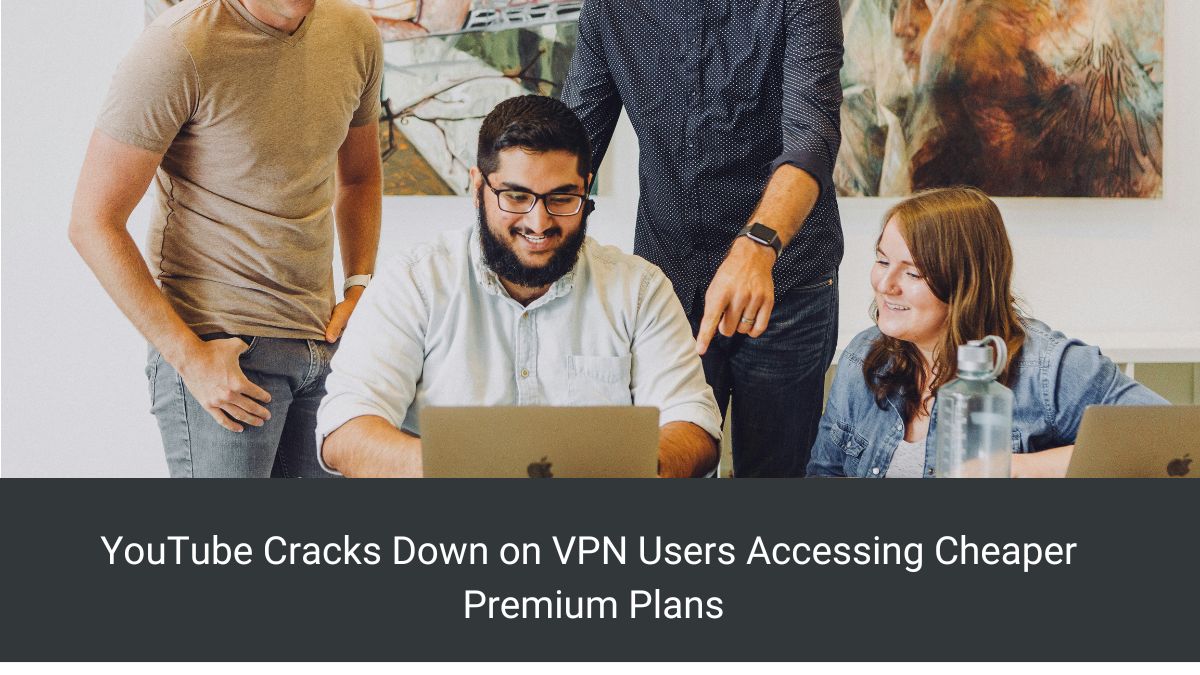Digital Marketing
YouTube Cracks Down on VPN Users Accessing Cheaper Premium Plans

In an era where streaming services have become an integral part of our daily lives, consumers are always on the lookout for ways to maximize value and minimize costs. However, a recent move by YouTube has sent ripples through its user base, particularly those who have been using virtual private networks (VPNs) to access cheaper Premium subscription rates.
The VPN Loophole: A Double-Edged Sword
Virtual private networks have long been lauded as tools for enhancing online privacy and security. They encrypt internet traffic and mask users’ IP addresses, making it difficult for third parties to track online activities. However, this very feature has also opened up a loophole that some savvy subscribers have been exploiting.
By using a VPN to appear as if they’re browsing from a country where YouTube Premium is offered at a lower price, users have been able to snag significant discounts on their subscriptions. It’s a practice that’s been something of an open secret among tech-savvy consumers, but it seems the party is coming to an end.
YouTube’s Crackdown: What We Know
Recent reports across social media platforms, particularly Reddit, have revealed a wave of subscription cancellations targeting users suspected of using VPNs to access discounted rates. YouTube has confirmed that it has systems in place to detect when a subscriber’s signup country doesn’t match their actual location.
A YouTube spokesperson stated, “To provide the most accurate plans and offers available, we have systems in place to determine the country of our users. In instances where the signup country does not match where the user is accessing YouTube, we’re asking members to update their billing information to their current country of residence.”
While YouTube has been tight-lipped about the specifics of these cancellations, a Google support agent reportedly told PCMag that the company has “initiated the cancellation of premium memberships for accounts identified as having falsified signup country information.”
The Ripple Effect: User Reactions and Implications
The news has sparked a mix of reactions from affected users. Some express frustration at losing access to more affordable rates, while others acknowledge the ethical gray area of using VPNs for this purpose.
One Reddit user commented, “I get why they’re doing it, but it still stings. The price difference between countries is huge, and it felt like a harmless workaround.”
This crackdown comes on the heels of YouTube’s price hike for U.S. subscribers last year, which saw the cost of individual Premium plans rise from $12 to $14 per month. For many users, this combination of factors has led to a reassessment of the value proposition offered by YouTube Premium.
The Broader Context: Streaming Services and Regional Pricing
YouTube’s move highlights the complex landscape of global pricing strategies for digital services. Streaming platforms often adjust their prices based on local economic factors, purchasing power, and market competition. While this approach aims to make services accessible across diverse economic regions, it also creates opportunities for arbitrage that companies like YouTube are now working to close.
This situation isn’t unique to YouTube. Other streaming giants like Netflix have long grappled with similar issues, implementing various measures to ensure users are paying rates appropriate to their actual location.
The Technical Challenge: Balancing Detection and Privacy
From a technical standpoint, YouTube’s crackdown presents an interesting challenge. The company needs to balance its ability to detect VPN usage with respect for user privacy. After all, many users employ VPNs for legitimate security reasons, especially when accessing the internet on public networks.
It’s likely that YouTube is using a combination of factors to identify potential VPN users, including:
- IP address analysis
- Payment method location
- Usage patterns
- Account history
The effectiveness of these methods, and how they might evolve in response to more sophisticated VPN technologies, remains to be seen.
The Future of Streaming and VPNs
As streaming services continue to grow and evolve, it’s clear that the relationship between these platforms and VPN usage will remain complex. For consumers, this crackdown serves as a reminder that the terms of service for digital platforms are subject to change and enforcement.
Moving forward, we may see:
- More stringent verification processes for new subscribers
- Increased collaboration between streaming services to share information about VPN usage
- The development of more sophisticated VPN detection technologies
- Potential legal challenges regarding the right to use VPNs for accessing digital services
A Balancing Act
YouTube’s crackdown on VPN users accessing cheaper Premium plans underscores the ongoing tension between consumer desires for affordable access and companies’ needs to maintain pricing structures and comply with regional agreements.
As we navigate this evolving digital landscape, it’s crucial for both consumers and service providers to find a balance that respects user privacy, ensures fair pricing, and maintains the sustainability of the streaming ecosystem. Whether this recent move by YouTube will set a precedent for other streaming services remains to be seen, but it certainly marks a significant moment in the ongoing dialogue about digital access, pricing, and the role of VPNs in our online lives.
